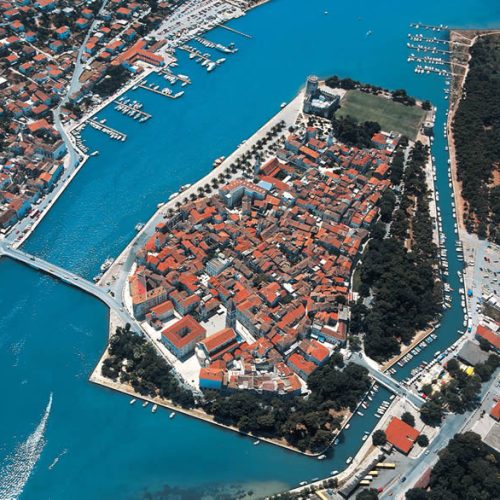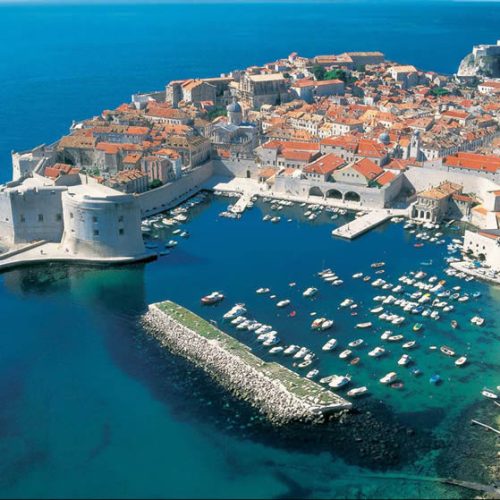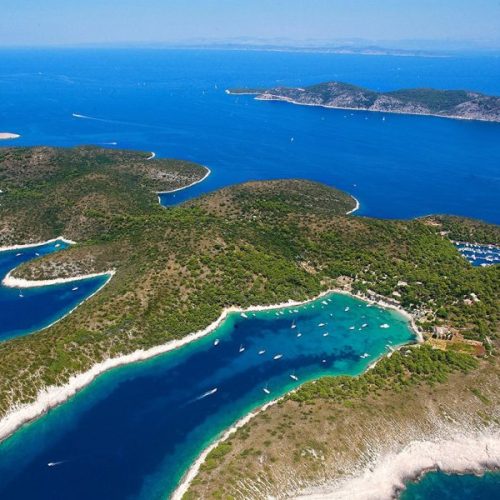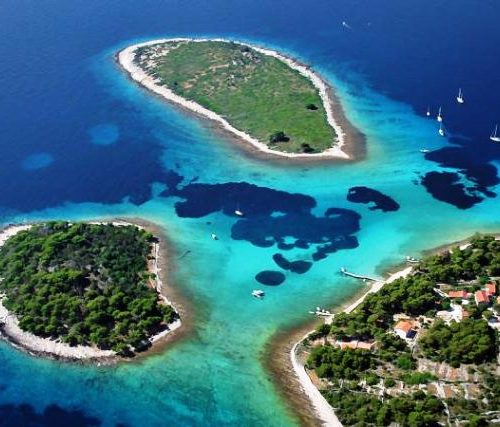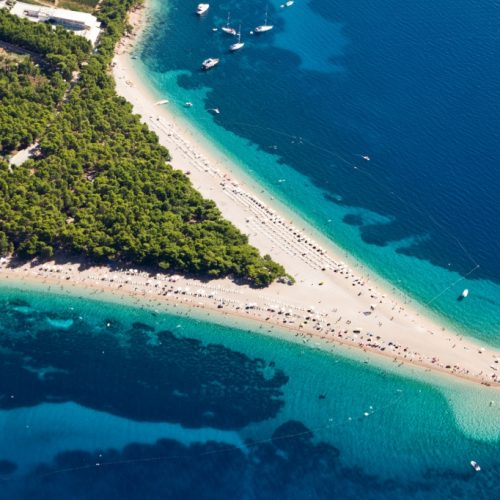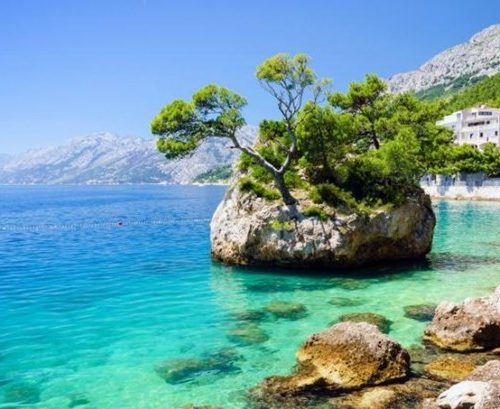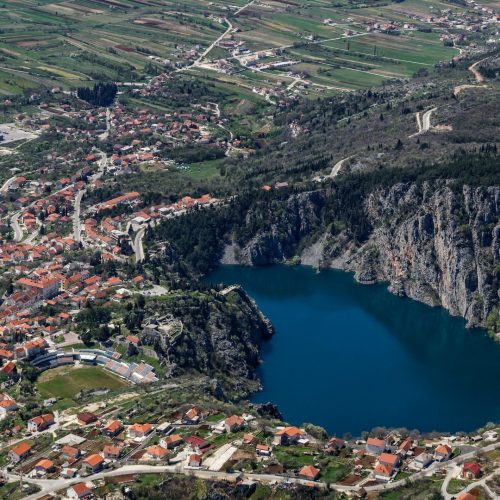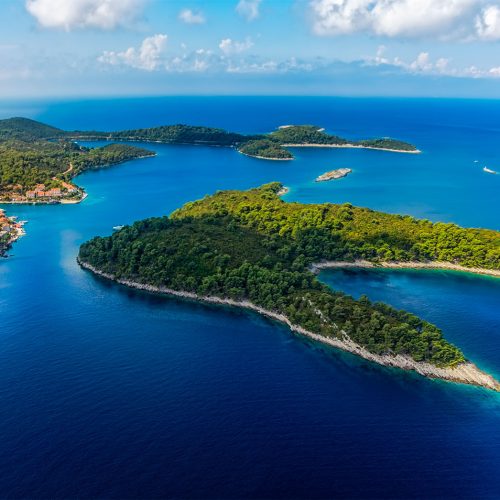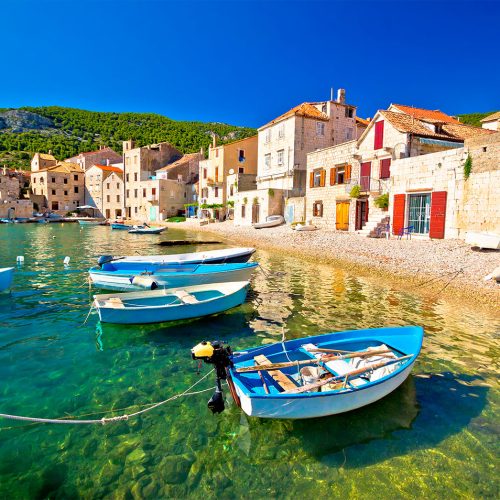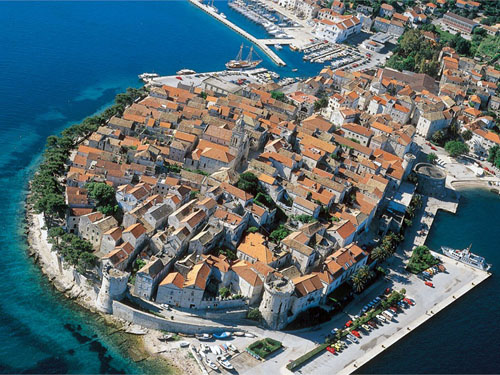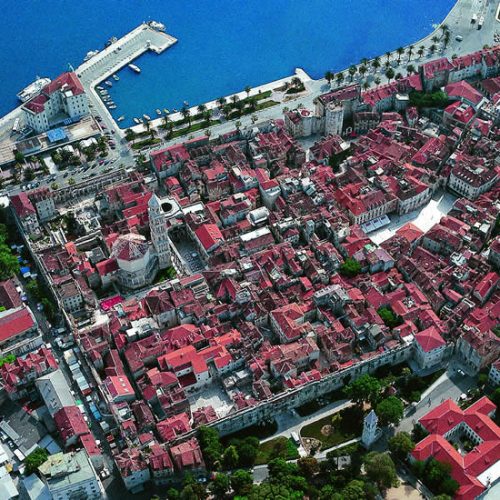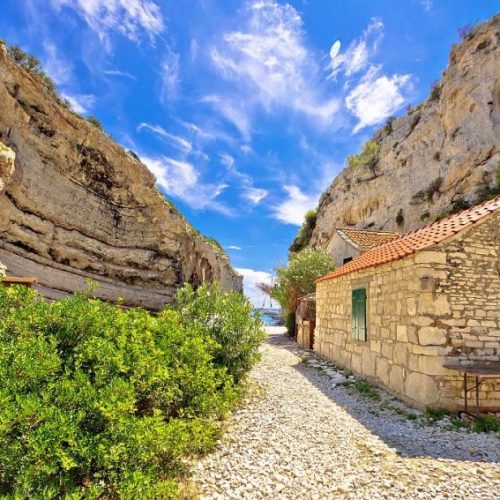SURROUNDINGS
Surroundings in Omiš
One of the greatest perks of choosing Omiš as your holiday destination will be the fact that you’ll have all of Dalmatia at your fingertips. Numerous islands, cities like Split, Dubrovnik, Šibenik, Trogir, Zadar and Međugorje, the world-famous Marian place of pilgrimage in Bosnia and Herzegovina, popular tourist attractions such as the National park Krka and the Blue and Red Lakes near Imotski are all within an hour or two’s drive from the town centre!
Whatever direction you drive in from Omiš, it’s just a matter of minutes when you’ll be reaching a famous tourist destination. Less than 25 kilometers north-west of Omiš lies Split, the second biggest city in Croatia, with its more than 1700 years old Emperor Diocletian’s Palace, and just 20 minutes further in the same direction you’ll find the town of Trogir, a living museum of sorts and one of the few towns in the world with its entire historic city inscribed on the UNESCO’s World Heritage List. Driving further along the coast, you’ll reach two other popular holiday destinations, the cities of Šibenik and Zadar, and in the hinterland of Šibenik you can visit one of the top one-day tour destinations in Dalmatia, the National park Krka, which is no more than a two-hour drive away from Omiš along the A1 motorway!
If you decide to drive north, the road will take you through the picturesque villages of the medieval Republic of Poljica, and a bit further into the hinterland of Dalmatia you’ll reach two breathtaking natural phenomena, situated near the town of Imotski – the famous Blue and Red Lakes.
Driving south (or to be more exact, south-east along the coast) is in itself a one of a kind experience. There are not many places in the world were you can drive for more than 200 kilometers along the sea coast, especially along one as rugged and rich in islands as the coast of Dalmatia. Beaches, coves, amazing views, small villages and tourist resorts such as Baška Voda, Makarska, Drvenik, Ploče, Metković, the islands of Brač, Hvar, Korčula, Mljet, Trpanj, the peninsula of Pelješac… All of these amazing places will be lining themselves up before you on your way to the very south of Dalmatia, where a truly unique reward awaits – the city of Dubrovnik, the tourist pearl of Croatia, which is less than a three-hour drive away from Omiš.*.
NOTE: Pulling over to the side of the road every 10 minutes or so because of the irresistible urge to take photos of the most beautiful coastline in the world is not included in this estimate.

